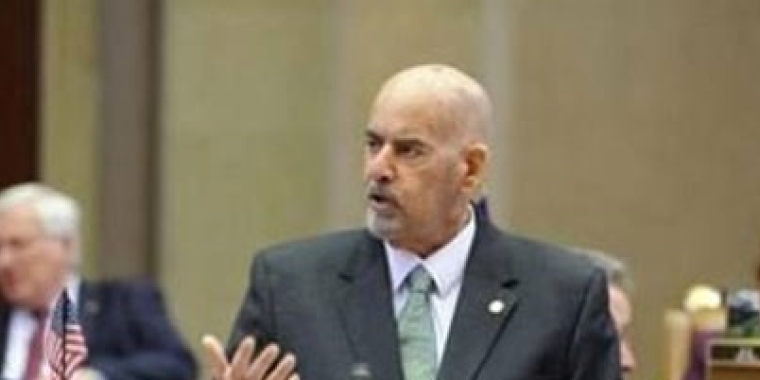
Senator Flanagan Supports Successful Tax Cap And Mandate Relief Measure
John J. Flanagan
June 28, 2011
-
ISSUE:
- Property Tax
Senator John Flanagan (2nd Senate District) proudly voted in favor of a historic property tax relief legislation that enacts a cap on the growth of local property taxes. The bill will provide taxpayers of Long Island with the property tax relief they need by limiting the growth of school and local taxes to less than two percent or the Consumer Price Index (CPI), whichever is lower.
In an effort to protect the services that many Long Islanders need and deserve, the legislation also includes mandate relief with $127 million in savings to local governments, in addition to the creation of a Mandate Relief Council to identify and repeal unsound, unduly burdensome laws and regulations.
The legislation was also approved by the Assembly and signed into law by Governor Andrew Cuomo. It will start working for the taxpayers of New York State in July.
“Enacting a tax cap to protect our homeowners was my first priority this year. By combining it with much-needed mandate relief, it is a sensible way to help our families stay here on Long Island without harming the overall quality of life we all have come to expect and appreciate,” stated Senator Flanagan. “The simple truth is that our state has been losing residents and businesses because they cannot reach any further in their pockets to pay skyrocketing property and job-killing business taxes. This change will help ensure that our residents have clear voice in how the governments that work for them operate and give them a say in their community.”
This tax cap would shift the focus from total spending to the actual property taxes levied to support school district and local government expenses. The bill includes the following provisions:
· This bill limits tax growth to the lesser of two percent or the annual increase in the CPI. Only the “Big 5” school districts of Buffalo, Rochester, Syracuse, Yonkers and New York City would be exempt since they are funded through city budgets.
· The exceptions for a tax levy above two percent or CPI are funds needed to support voter-approved capital expenditures, pensions, torts over five percent of the prior year’s levy, and an override of the cap.
· This bill also allows the growth in the levy due to physical and quantitative change.
· A school district would be required to submit a tax levy proposition for approval by voters at the district's annual meeting on the 3rd Tuesday in May. If the proposed tax levy is within the district's tax levy limit, then a majority vote would be required for approval.
· If the proposed tax levy seeks to override the cap and exceeds the district's tax levy cap, the tax increase would have to be approved by at least 60 percent of the voting public.
· A school district that does not levy an amount up to the cap in any one year would be allowed to carry over unused tax levy capacity into future years. However, this carryover levy capacity cannot be used to increase its tax levy by more than an additional 1.5 percent above the cap in any single year.
· In the event a district's actual tax increase exceeds its authorized amount due to clerical or technical errors, the erroneous excess levy must be placed in reserve to offset the levy for the next school year.
The bill also provides for the same cap to apply to taxes levied by municipal governments. Local governments that do not levy an amount up to the cap in one year can rollover that amount up to 1.5 percent in the following year. These local governments can exceed the cap with a 60 percent vote of the governing body.
Exceptions include the pension and tort judgments in excess of five percent from the prior year’s levy. When enacted, the law would take effect for the 2012-13 fiscal year.
In addition to the cap on tax increases, the mandate relief component would provide real cost savings in the form of $127 million in savings to local budgets. This includes:
· $70 million for all local governments and school districts through piggy-backing and centralized contracts.
· $34.6 million in savings for school districts;
· $13 million for transportation/housing/contracting/procurement/administration for all localities;
· $7.9 million in social services savings for counties; and
· $1.5 million in criminal justice savings.
To continue building on this mandate relief, the legislation also establishes a Mandate Relief Council which will:
· Determine if a statute or regulation is unsound, unduly burdensome, or costly;
· Establish procedures for repealing unfunded mandates in both statute and regulation;
· Provide a mechanism for direct appeals from the State Administrative Procedures Act petition;
· Require the state Comptroller to issue a detailed report on the cost and effect of unfunded mandates;
· Require that all bills that require a local government or a school or special district to take any action contain a fiscal note; and
· Be comprised of 11 members nominated by the Governor and Legislature: two nominations for each of the legislative leaders, and seven nominations for the Governor, including the Secretary to the Governor (who would serve as chair), the Governor’s Counsel, Secretary of State, Director of the Division of Budget, and three additional members from the Governor’s executive chamber staff.
Share this Article or Press Release
Newsroom
Go to NewsroomSenator Flanagan Secures Funding For Old Field Lighthouse
October 22, 2018

Senator Flanagan Secures Funding To Support Long Island Cares
October 18, 2018

Statement From Senate Majority Leader John J. Flanagan
October 16, 2018

